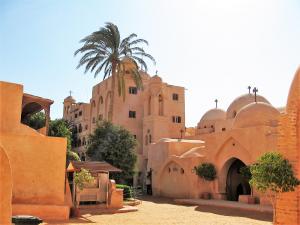
When we are new to the faith, or when we find our faith has become renewed, we often find ourselves filled with zeal. We are happy. We are filled with good will for others. This can be seen in the way we treat each other while on a spiritual high. We lift each other up. We encourage each other. We help each other to overcome the faults of the past and ignore them so that we can find a way to come together and have peace and joy in that union. But, for so many of us, as times goes by, that enthusiasm leaves us. We start acting differently. No longer filled with peace ourselves, we treat others in a way that resembles our own internal discord. We become rude and indignant. We want to feel good, so we prop ourselves up, trying to make ourselves look better than others, thinking the feelings which we get with such vainglory will replace the peace which we once had. Thus, over time, we find that as our love grows cold, we become divided against each other. The unity which we had is lost.
Every new, authentic movement in the church has the potential to follow this pattern, where we start out with great love for others, and slowly find that love fade away. Thus, even authentic reforms slowly decay and finds themselves tainted. Abba Megethius, one of the desert fathers, saw this happening in his lifetime:
He [Megethius] also said, ‘Originally, when we met together we spoke of edifying things, encouraging one another and we were “like the angels”; we ascended up to the heavens. But now when we come together, we drag one another down by gossiping, and so we go down to hell.’[1]
The desert once was said to be like a city of angels; however, as Megethius explained, that was when the ascetics first came together. As time went by, even the desert community became “like hell” in the way the ascetics started to gossip and fight against one another. This shows us we must not romanticize the desert fathers and their community, thinking they lived in an ideal utopia without difficulties or conflicts of its own. They didn’t think so. Once they lost their love for one another, they lost their center, and so the ascetic labors they embraced no longer brought them peace and joy but rather reinforced the hell of their own creation. No wonder many of them started to engage worldly contests, embracing vainglory as they tried to outdo one another in their ascetic accomplishment. For, when they received accolades for what they had done, they received a semblance of the joy which they had lost, but such joy was as transitory as the accolades they received. Unless they continued to do more, greater things, someone would come along doing something greater than those who had come before, and all those who had come before would be forgotten; all the joy they had received from the way they were praised would vanish. This is when they would find that if their labors were not done with the right spirit, they would do them no long-lasting good. This is not to say ascetic labors are worthless, for those who are filled with love can find in them a means by which their love can be strengthened and confirmed.
We must realize that when we get into contentious fight with others, gossiping about them and their faults, judging and condemning them, we find ourselves moving further away from the love which we should have. If we are bitter, if we engage slander, if we let hate develop, we create the space and condition we need for our own private little hell. Indeed, James warns us, the more we let such bitterness take control, so that we become judgmental, the more we turn ourselves away from the mercy of the Gospel. Eventually, we risk encountering justice without mercy, and if we do, we will find it will judge and condemn us for our own faults and sins:
Do not speak evil against one another, brethren. He that speaks evil against a brother or judges his brother, speaks evil against the law and judges the law. But if you judge the law, you are not a doer of the law but a judge. There is one lawgiver and judge, he who is able to save and to destroy. But who are you that you judge your neighbor (Jas. 4:11-12 RSV).
If we embrace judgment, we will get judgment. If we embrace justice without mercy, we will get justice without mercy – that is, we will get hell. We will produce such hell for ourselves, for we will deny the grace which comes with mercy, the grace which is necessary if we do not want to experience the pains of hell. Without mercy, without grace, we will experience the fires of unmerciful justice, which is the fires of hell. The more judgmental we become, the more condemnatory we become, the more we will receive what we dish out; the more we try to send others to hell, the more we will experience hell in and for ourselves. If we are not lifting each other up with love, we will find ourselves lost in hell.
We must be aware that the kingdom of God is at hand, that it is in our midst. The end has come to us. The eschaton is immanent. Though we do not know when the end of time will take place, we do know that the end, the eschaton, has come and dwelt among us. The Alpha and the Omega, the beginning and the end, has been revealed to us as the God-man, Jesus Christ. The end has come and we can encounter and experience the glory of the kingdom of God. Our time is always short. We should not sleep. We should strive to be awake, doing all things in relation to the immanent eschaton so that we can experience the glory of the kingdom of God for ourselves:
So then let us not sleep, as others do, but let us keep awake and be sober. For those who sleep sleep at night, and those who get drunk are drunk at night. But, since we belong to the day, let us be sober, and put on the breastplate of faith and love, and for a helmet the hope of salvation. For God has not destined us for wrath, but to obtain salvation through our Lord Jesus Christ, who died for us so that whether we wake or sleep we might live with him. Therefore encourage one another and build one another up, just as you are doing (1 Thes. 5:6-11 RSV).
We must embrace the kingdom of God. We do that in and through love. If we love Jesus, we will keep his commandments, the commandments which are really the expectations of love. We will follow through with love and engage everyone in and through such love. We will do what we can to keep love strong in us so that we can and will experience all things in and through that love. Then, when our personal end comes, we will be able to experience it in and through such love, which means, we will find ourselves glorified in it. But if we do not, then we risk finding the hell which we create for ourselves through our lack of mercy will follow us in our death, so that as long as we hold onto judgment without mercy, we will experience the fires of hell.
[1] The Sayings of the Desert Fathers. Trans. Benedicta Ward (Kalamazoo, MI: Cistercian Publications, 1984), 150 [Megethius Saying 4].
Stay in touch! Like A Little Bit of Nothing on Facebook.
If you liked what you read, please consider sharing it with your friends and family!












